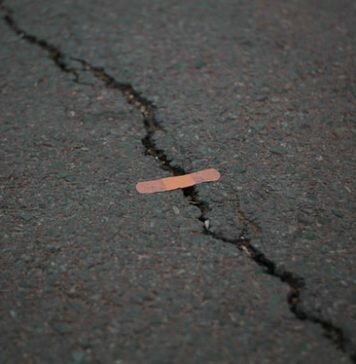Thirty years on and the film Thelma & Louise is unique even among an ever-increasing canon of woman-led films. Yes, today we have so many more films in which women are powerful and supposedly empowering (and entertaining) because they blow things up and kick ass. Yet, in so many of these films, the women characters are doing what their male counterparts do in men-led action films, rather than drawing strength and power from who they are in a way that feels authentic and truly empowering.
When Thelma and Louise came out in 1991, it was so unlike any other film at that time. It was a film about empowerment. That freedom inspires us, the viewers, and this is why audiences were drawn to it, diverse audiences, too. The film’s influence went beyond women. It is a film that also resonated with men. A guy friend of mine watched his VHS of the film in the 90s so much that he wore it out. Literally, the tape broke. The only other film he owned that this happened to was Spaceballs. Why was Thelma and Louise a film that he watched again and again and again? Because its message of empowerment resonated with him, too. Sometimes, boys do not feel empowered or in charge of their lives and so stories that center individuals taking control of their lives against large outside forces can be inspiring and engaging to them as well.
I didn’t see the film in the early 90s like my friend. I was in the 8th grade when the film came out and living in a small town in Texas. I discovered it years later, right on time, as I was beginning to seek out and acquire an understanding of what feminism was and was immersing myself in stories told by women. Films like Thelma and Louise, a film that clearly and unapologetically tells a woman’s story, offered me something that I could relate to in a way that the majority of cinema at the time did not.
Thelma and Louise stands up against the test of time. It remains (sadly) incredibly relevant.
In fact, watching it again now, I remain impressed at how much Thelma and Louise stands up against the test of time. It remains (sadly) incredibly relevant. Recently, Bill Cosby was released from prison because of prosecutorial misconduct. To be clear, the judge did not release Cosby because he is innocent. No one is saying that (well, some fringe voices are). Cosby is guilty, but the prosecutor did not handle the case properly and because Cosby has the resources, those prosecutorial mistakes led to Cosby’s release. The prosecutor’s actions bring with them a renewed sense of pain and trauma for so many women survivors.
This event and the assumption by Cosby and his legal team that he should not have to serve time for the crimes he committed, their devaluing of the rights of women to the control of their own bodies, speaks directly to the staying power of Thelma and Louise. In the film, Harlan (played by Timothy Carhart) and Thelma (played by Geena Davis) flirt at a bar and dance a little, but outside in the parking lot, where the duo go (at Harlan’s suggestion) so that Thelma can get some much-needed fresh air, Harlan’s aggressive behavior escalates.
Despite Thelma’s repeated rebuttals and physical attempts to push Harlan away, it becomes increasingly clear that Harlan has no interest in what Thelma wants. Louise (played by Susan Sarandon) interrupts and makes use of the gun that we watched Thelma uncomfortably toss in her handbag as she packed for the trip at the beginning of the film. Forced to stop by the presence of a gun at his neck, Harlan makes it clear that he feels no remorse for his actions. Rather, he insists that he should have gotten to have his way with Thelma. Her rights, her thoughts on the matter are, for him, irrelevant. His blatant disrespect and inability to see that what he has done is wrong is what pushes Louise over the edge and lands a bullet square in his chest, sending the film off in an entirely new direction.
What presented itself initially as a fun road trip film, a girls’ weekend getaway, quickly becomes something quite different. Thelma and Louise peel out of the bar parking lot, put distance between themselves and the crime scene, and start the messy process of deciding what to do next.
Screenwriter Callie Khouri has skillfully set the stage for us and is particularly deft at abiding by a critical rule for a well-written screenplay: everything for a reason. There is not a line of dialogue or single action that is wasted. By this point in the film, we have a firm grasp on each of our lead characters: Thelma, naive and eager, given her life with a controlling, manipulative husband; Louise, strong and independent, a woman who demands respect and will take nothing less.
In the aftermath of Harlan’s death, Thelma suggests that the two women go to the cops and tell their story, tell the truth, that Harlan was raping her. Louise’s response, though written 30-plus years ago, is one that women today understand all too well.
“Just about 100 goddamn people saw you dance cheek to cheek with him all night! Who’s gonna believe that? We don’t live in that kind of a world, Thelma!”
Louise’s response to Thelma’s suggestion echoed in my head as the image of Bill Cosby walking free circulated online and my Twitter feed became very understandably filled with outrage. Louise (or Khouri rather) is still right: “We don’t live in that kind of a world.”
“We don’t live in that kind of a world.”
We live in the kind of a world in which powerful, wealthy men who have drugged and raped more than 60 women, spend all of their available resources to get themselves set free.
We live in a world in which women still fight for anyone to believe them when they are raped, still know that their behavior, their actions, their alcohol intake, will be questioned, even though none of these things is to blame for what happened to them. That blame lies squarely at the feet of the perpetrator.
As an audience, we can connect to Thelma and Louise and the scenario they find themselves in. Further, Khouri continually reminds us in very organic ways that the majority of the men around these two women are intent on screwing them over. Jimmy, Louise’s would-be-fiance, played beautifully by Michael Madsen, and Hal, the detective trying to track the women down, played by Harvey Keitel, seem to be the only two men in the entire film who are genuinely interested in helping these women and the only two people for whom the truth might matter.
Even J.D., played by a young and very charming Brad Pitt, ultimately takes advantage of Thelma even if he also offers her her first truly positive sexual experience, something we are rooting for as an audience, but that is sullied when J.D. steals all of Thelma and Louise’s money.
The sweet moments between Sarandon and Madsen, and the flirty engagements between Pitt and Davis lighten the film and are enjoyable. But the primary power of the film lies in the strong friendship between Thelma and Louise and the chemistry between Sarandon and Davis. The presentation of their friendship on screen is beautiful and authentic in a way that still feels fresh and unique. The women are not catty with one another. They are not competing for attention. They are honest with each other. This film, more than perhaps any other I’ve ever seen, comes the closest to reflecting the power and importance of deep friendships between women, and reminds me of how important the women friends in my life are.
The film has heart and is more than the sum of its parts, which include a skillfully crafted screenplay, impressive direction by Ridley Scott, beautiful performances by a very talented cast, gorgeous landscapes and backdrops, and an all-too-relatable story.
Thelma and Louise take hold of their power, find their strength and take their fates into their own hands, and this is why, thirty years later, it remains a film to celebrate.
National Sexual Assault Hotline: 1-800-656-4673
National Suicide Prevention Hotline: 800-273-8255
Photo courtesy of Pathe Entertainment.







![[Blood] Sodden Anguish/Deathbed Red (Fall 2017 Mood Board)](/wp-content/uploads/2021/07/Cosmic-Blood-Wash-Final-Ami-J.-Sanghvi-300-DPI-218x150.jpg)




